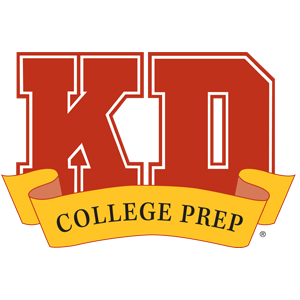Spring Break means many different things for families. Some families visit the beach or mountains, check out local attractions, or catch up on much-needed sleep.
If your family includes a high school student, there’s a good chance you’re about to plan a college visit.
Visiting colleges is undoubtedly one of the best parts of the college search, but planning it can be stressful for parents and students. Here’s our guide for getting the most out of your college visit.
Before You Go
Why should you visit colleges?
There’s a saying in college admissions— “You have to go to know.” Although most students can’t afford to visit every possible college match, you should visit before signing on the dotted line.
Can you picture yourself at this college for four years? Do you like the people you meet there? Even if a college has a top-ranked program for your major, you need to like the school — end of story. (You’ll probably change your major anyway).
Which colleges should you visit?
8th and 9th graders can get a lot out of a college visit. The idea of college seems far away and abstract to students. Connecting the work your teen is doing now with the excitement of college is a great motivator.
If you’re lucky enough to have college campuses near your home, start there. Try to visit colleges of different types, sizes, and locations.
10th and 11th graders should also visit different types of colleges but should focus on likely suspects. Visiting colleges to which you’ll never apply becomes a waste of time as you get closer to applying.
12th graders usually visit colleges that they are seriously considering or to which they are applying or have been accepted.
The question you must answer: Why are you visiting this college?
While this may seem like a silly question, it’s the most crucial thing to decide. Are you researching colleges early to find the type or size that fits you best? Are you looking for colleges similar to those you have on your list? Will you be making any final decisions? Do you plan on visiting Aunt Sally who lives nearby, and you’ll need an excuse to get out of the house?
Whatever your reasons, be clear. Deciding on your purpose will help you ask the right questions, see the right things, and meet the right people.
It’s time to plan your college visit. But wait—have you done your research?
What do you know about the college?
Research admission requirements, cost, deadlines, majors, special programs, and anything else that is a priority for your family before you visit. Check out the college’s website along with other resources like Cappex or You Visit.
When should you visit a college campus?
Don’t just show up on campus and expect to have a tour guide. Look at the college’s website for schedules and to sign up. Tour slots can fill up, especially during school breaks.
If you live in the South and are thinking about schools in the Northeast, visit when there is snow so you can get a real idea of what it will be like to trek to class each day. Does a 6-month period of perpetual darkness and face-blistering cold appeal to you?
On Your Visit
What should you do on a college visit?
1. Talk to People
Talk to students and ask them about student life, academics, and extracurricular activities. Ask why they chose the university and what their experiences have been so far. You will get more out of these conversations than from reading about the school’s ranking and prestige online.
Visit with an admissions counselor, the housing office, and someone in financial aid. Parents should feel free to take the lead in the financial discussion. You’ll want to ask about scholarships, grants, and other ways to help pay for college.
If you’re an athlete, artist, or you have a special interest, request an appointment with a coach, department head, or dean.
Not sure which questions to ask? Check out “Questions to Ask on a College Visit” to get some ideas.
2. Explore Your Intended Major
The college of your desired major is not always on your tour route or included in the slideshow presentation. Seek it out. Once you see the actual engineering school or nursing building, you can visualize yourself in that classroom reaching your dreams.
See if the college offers opportunities to sit in a class or visit with a professor. You can sometimes find this information on the admissions website, but you can also email department heads or professors directly.
3. Explore the campus
Look inside the freshman dorms, eat at the dining hall, grab a coffee at a café. Visit the library and other notable places on campus. Are the buildings clean and well maintained?
Do you feel comfortable on campus? Can you envision yourself walking to class with the other students? If students look happy to be there, that’s always a good sign.
4. Explore the surrounding city
This college will be your home for the next four years. What else is there to do beyond the walls of the classroom or the library?
Are there museums, outdoor activities, shopping, and entertainment that meet your needs? If you’re used to having easy access to your favorite stores, moving to a remote college might be a shock. Find the grocery store and how you would get to it.
See how involved students are in the community. Check out volunteer and job opportunities if that is important to your college experience.
You should also consider transportation options to and from your home. If you have to fly home, are there nonstop flights? If you will have to make multiple connections, that can impact your ability to go home for holidays.
Other Things to Consider
What should you wear on a college tour?
Dress comfortably but nicely. Khaki pants, a polo shirt, a casual dress (that’s not too short), or something similar is appropriate. Don’t wear an old pair of jeans, flip flops, or anything torn. Think of what you would wear to visit your grandma.
If you have an interview on campus, bring a shirt and tie, a skirt and blouse, or something business casual.
Be respectful.
This one goes without saying, but can be easily forgotten. You are making an impression. Don’t curse, speak rudely to staff, or argue with your family. Don’t corner the admissions counselor with question after question while others are waiting.
Be polite and introduce yourself with confidence. Ask questions sincerely and concisely. Thank people for their time. Don’t become an unwelcome visitor.
Keep a record of your visit.
Take photos as you walk around campus. Bring a small notebook and take notes on things the tour guide says that pique your interest. Write down questions you want to ask later.
Get business cards or names from people who help you during your visit. Don’t forget to follow up and thank them for their time.
Reflect on your visit with your family.
What was memorable to you? Did anything surprise you? The college on paper and the college in real life can be completely different.
It’s possible to have high expectations going into a tour and leave with a sense that the college didn’t meet those expectations. That’s okay. Share these thoughts and compare your experiences from various college visits.
What if you can’t visit a college due to time and/or financial constraints?
Take a virtual tour.
Many colleges have virtual tours on their websites or on Youtube. You can also check out You Visit for a treasure trove of free virtual college tours.
Demonstrate your interest in the college in other ways.
Sign up for the college’s mailing list and newsletters. Correspond with admissions staff through email. When a college representative is in your town or at your high school, stop by and say hello. Colleges want to know that you are serious about attending, so show them that you are.
What’s next?
College visits are an essential part of finding your best fit. Plan ahead, have the right expectations, and go into each visit with an open mind.
Lastly, let your overly excited mom raid the campus book store and take those embarrassing photos with the school mascot. Visiting your potential college will be an experience you and your family will remember forever.
We offer a variety of college counseling services to help you get into your dream college. Contact a campus near you to learn more.














































